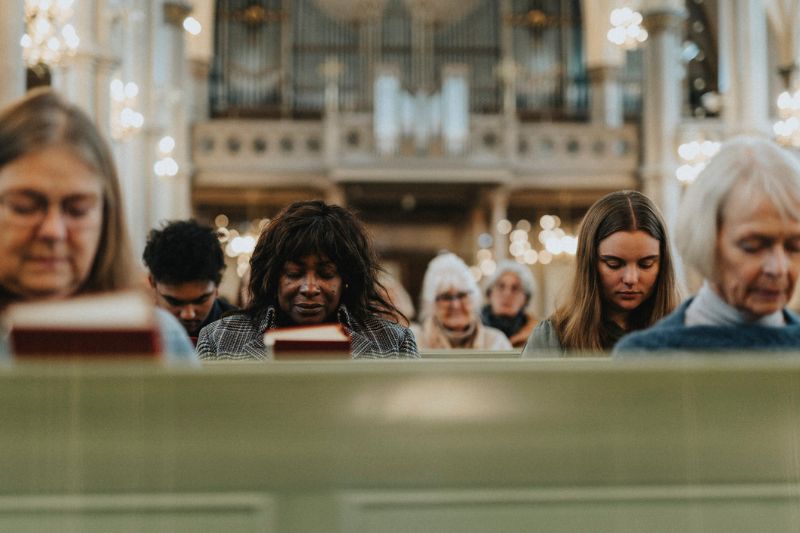Fr Frank Brennan SJ has spoken publicly about the possibility of women deacons in the Catholic Church for a number of years. Yet his recent address at John XXIII College goes much further. Using women deacons as a ‘case study’ for the implementation of synodality, Fr Frank offers a bold challenge — an exciting possibility — to the Australian Catholic Bishops’ Conference.

He says that the October Synod’s Instrumentum Laboris ‘enables us to overcome the idea that all churches must necessarily move at the same pace on every issue … differences in pace can be valued as an expression of legitimate diversity and an opportunity for the exchange of gifts’. Therefore, on the matter of allowing access to the diaconate for women, he proclaims, ‘Let's hope our Australian Bishops are prepared to step out, if even a little ahead, of their colleagues in Rome’.
That women ‘participate in decision-making processes and assume roles of responsibility in pastoral care and ministry’ is one of only four ‘urgent’ matters in the 2023 Synod Synthesis Report. While two Commissions have studied women’s ‘access to the diaconate’ in Pope Francis’s pontificate, and it was a significant matter for consideration in the Synod, it has been relegated to a separate Study Group entrusted to the Dicastery for the Doctrine of the Faith, due to report in June 2025. While the members of Group 5 are the only ones who remain unnamed, they will offer a progress report to the 2024 Synod.
Is all this study ‘kicking the can further down the road’, as Fr Frank wonders? From his point of view, ‘The question of women deacons deserves an answer now’. And when there is an opening, it could be the Australian church’s opportunity to step forward.
What could this mean? Not that Australia breaks away from the Catholic Church’s universal jurisdiction, but that the Australian bishops animate the desire for ‘genuine doctrinal authority’ of today’s synodal Church (IL, #96). There is an ample offering already in the decrees of our 2022 Plenary Council: ‘That, should the universal law of the Church be modified to authorize the diaconate for women, the Plenary Council recommends that the Australian Bishops examine how best to implement it in the context of the Church in Australia.’
Furthermore, the Australian Church has long experience of deacons with a permanent vocation, and women in authorised ecclesial roles of responsibility in parishes, chaplaincies and diocesan agencies. As Fr Frank says, ‘Here in Australia, where women’s equal participation in all aspects of public life has accelerated rapidly this past generation, it's not surprising that young women and young people generally take exception to a church where all offices are not open to men and women’.
'Copious research has demonstrated the historical existence of women deacons, including St Phoebe, the only person in scripture with the descriptor Deacon.'
Thus many have been disillusioned by Pope Francis’s recent interview on American CBS television network. Speaking in a personal capacity, he gave an immediate and blunt answer to the question, ‘For a little girl growing up Catholic today, will she ever have the opportunity to be a deacon and participate as a clergy member in the church?’ The Pope's response: ‘No’. However, the Pope and Council of Cardinals are listening to women experts, who counter the Marian/Petrine principles of ministry. These principles, developed fifty years ago by Hans Urs Von Balthasar, are sometimes used to preclude women’s ordination. The Pope has been ‘surprised’ at their criticism, yet continues to meet. Such synodal openness to transformation will be needed for this or a future Pope to reinstitute the order.
Bishops in this country have already had to find creative pastoral solutions to care for their flocks using the canonical means available. So here is a chance to bring the reality on the ground into line with the historical, traditional order of the diaconate, which was also the case for men at Vatican II.
‘Copious research’, Fr Frank believes, has demonstrated the historical existence of women deacons, including St Phoebe: ‘the only person in scripture with the descriptor Deacon.’ Recently the Greek Orthodox Patriarchate of Alexandria and all Africa ordained a woman as a deacon in Zimbabwe. Yet where are St Phoebe’s successors in the Catholic Church today?
On her Feast Day of 3 September this year, Fr Frank will again be addressing this question in the light of synodality along with MC Geraldine Doogue AO and Synod expert Dr Sandie Cornish. Geraldine, who has explored the topic before, will ask a deacon and two women, ‘How did/would ordination change your ministry?’
Deacons have changed the face of Australian Catholicism, and many people have benefitted from their ministry of liturgy, word and service. The Australian Bishops have already embraced the bold and far-from-universal step of an ordained college of (permanent) deacons, priests and bishops. Could our readiness and experience lead the way in realising the vision of a synodal Church in mission? Could we supply a pilot program for the rest of the world? Could we take the step of women deacons?
Elizabeth Young rsm was born in rural South Australia and professed as a Sister of Mercy in 2010. Her ministries with youth, prisons, detention centres, parishes and nursing homes have arisen from her Bachelor and Masters studies in theology. She is currently a pastoral worker and secondary school chaplain in the Wilcannia-Forbes Diocese, NSW.
Main image: (Getty Images)